“Don’t you dare lick that seal!” screamed a bikini-clad young woman flicking the salty waves with her toes. As I glanced across the Santa Cruz Dog Beach toward the base of a succulent-covered cliff, a brown mutt the size of a footstool was fondling a lifeless pinniped half buried in the sand.
It was one of those days – a windless 75 degrees on the coast with a sky as blue as Paul Walker’s eyes (may he rest in peace) – where the sun’s delicate rays licked your bare skin without the sizzling reminder that it could kill you.
As I flipped onto my stomach to watch the pooch curling up to the deceased sea mammal, my initial wave of fascination tumbled into unease. A dog nuzzling a decaying animal was distressing, yes. But at the end of this beautiful day, there was one thing really made me sick: it was the middle of winter in northern California and I was tanning at the beach.
If you haven’t heard by now, California is in the middle of a water crisis. Governor Jerry Brown declared a drought emergency January 17 after one of the driest winters on record. One day before Brown’s announcement, the Sierra Nevada snowpack clocked in at its lowest level since the California Department of Water Resources started keeping records in 1960. All thanks to a high-pressure ridge hovering over California, cruelly deflecting rain and cold weather toward the rest of the country.
After peeking at this seal, so lifeless and cold under the glowing sun, I wondered how the drought might be affecting California’s other critters on land.
Jason Holley, a supervising wildlife biologist at the California Department of Fish and Wildlife, said that while he doesn’t yet have any data suggesting that the state’s bears, deer and mountain lions are acting any different in response to the dry spell, persisting dry weather may force them into unfamiliar territory.
All species have home ranges, which satisfy their three basic needs: food, water and shelter. During months of drought, if there aren’t enough berries or grasses or shrubs, an animal must travel further to meet those needs.
“Because they’re so mobile and adaptable, they can wander large distances to find natural food sources,” Holley said. “But if the dry weather persists, they’ll have to travel further and further. And the odds of them coming across people will increase.”
This is bad, according to Holley. Not necessarily because they may attack us, but because they may become overly reliant upon human food and begin to congregate in civilian areas. This will not only aid in the spread of disease, but if homeowners offer food and water to deer, for example, mountain lions may follow in search of a venison snack.
While Holley said that the department will have more animal movement tracking data available in April and May, it is asking residents, hikers and campers to be more diligent about protecting food sources and not to feed wildlife.
In the future, the department hopes to expand habitat linkages – or paths such as river corridors or passages under highways where animals can migrate naturally to other habitat areas without having to wander across the city.
“We have to keep our populations healthy. To do that we have to keep them wild,” said Holley.
The state declared January 31 that it would shut off water to 29 local agencies this spring and summer, a blow to the 25 million people and nearly one million acres of farmland the State Water Project normally serves. This is the first time in 54 years that California has forced water agencies to pull their straws from the aqueous reserve. While no one knows for sure how the slash in water allocations will affect wildlife, less water in streams and rivers can’t be good. The San Francisco Gate reported today that the annual migration patterns of coho salmon of Central California have already been disrupted.
The National Weather Service is predicting rain in the Monterey Bay area in the coming weeks. But even so, it is doubtful that enough winter weather will bring snowpack levels up to normal, according to chief of DWR’s snow survey section Dave Rizzardo in an interview with KPCC.
Either way, I will be doing my best to limit shower times and not leave any food outside my Bonny Doon home. However, while the warm weather persists, I just may have to continue watching the dogs frolic at the beach. Even if they are sniffing out dead sea animals rotting in the sun.

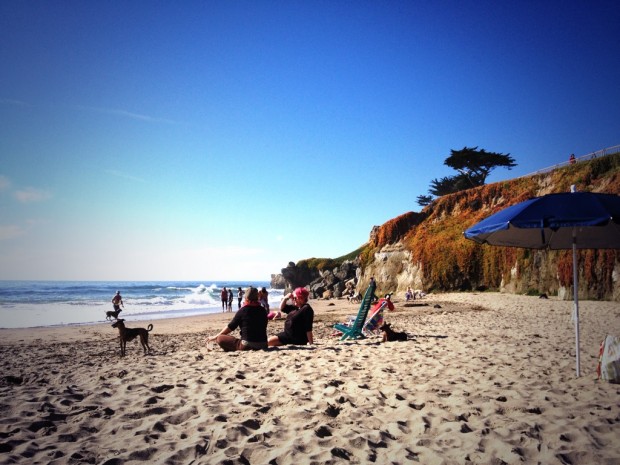
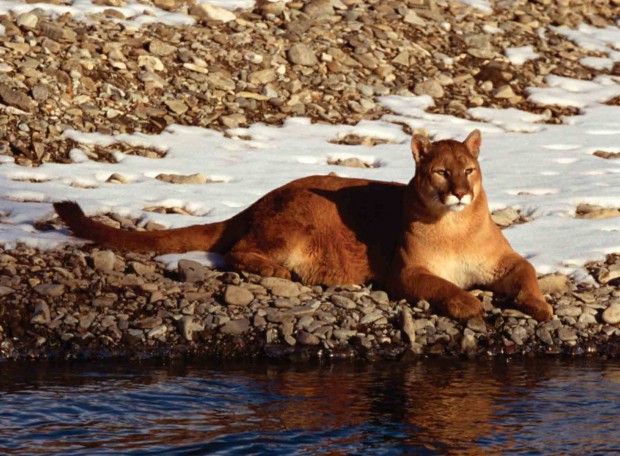
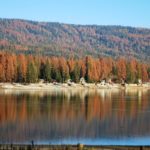

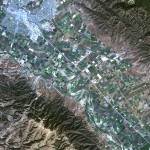
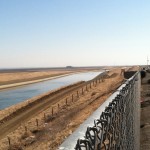


Comments are closed.